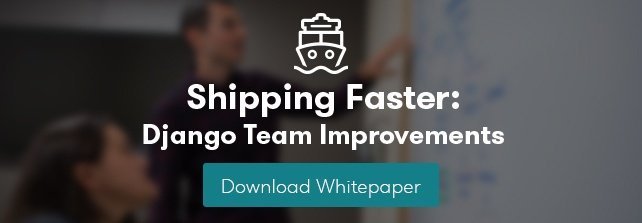
This past Friday we celebrated another ShipIt day at Caktus. There was a lot of open source contribution, exploring, and learning happening in the office. The projects ranged from native mobile Firefox OS apps, to development on our automated server provisioning templates via Salt, to front-end apps aimed at using web technology to create interfaces where composing new music or performing Frozen’s Let It Go is so easy anyone can do it.
Here is a quick summary of the projects that folks worked on:
Calvin worked on updating our own minimal CMS component for editing content on a site, django-pagelets, to work nicely with Django 1.7. He also is interested in adding TinyMCE support and making it easy to upload images and reference them in the block. If you have any other suggestions for pagelets, get in touch with Calvin.

Philip worked on a code to tag words in a text with basic information about their etymologies. He was interested in exploring words with dual French and Anglo-Saxon variations eg “Uncouth” and “Rude”. These words have evolved from different origins to have similar meanings in modern English and it turns out that people often perceive the French or Latin derived word, in general, to be more erudite (“erudite” from Latin) than the Anglo-Saxon variant. To explore this concept, Philip harvested word etymologies from the XML version of the Wiktionary database and categorized words from in Lewis Carroll’s Alice In Wonderland as well as reports from the National Hurricane Center. His initial results showed that Carroll’s British background was evident in his use of language, and Philip is excited to take what he developed in ShipIt day and continue to work on the project.
Mark created a Firefox OS app, Costanza, based on a concept from a Seinfeld episode. Mark’s app used standard web tools including HTML, CSS, and Javascript to build an offline app that recorded and played back audio. Mark learned a lot about building apps with the new OS and especially spent a lot of time diving into issues with packaging up apps for distribution.
Rebecca and Scott collaborated on work in porting an application to the latest and greatest Python 3. The migration of apps from Python 2 to Python 3 started off as a controversial subject in the Python community, but slowly there has been lots of progress. Caktus is embracing this transition and trying to get projects ported over when there is time. Rebecca and Scott both wrestled with some of the challenges faced with moving a big project on a legacy server over to a new Python version.
Dan also wrestled with the Python 2 to 3 growing pains, though less directly. He set out to create a reusable Django app that supported generic requirements he had encountered in a number of client apps while exporting data to comma separated value (CSV) format. But, while doing this, he ran into difference in the Python 2 and 3 standard libraries for handling CSVs. Dan created cordwainer, a generic CSV library that works both in Python 2 and 3.

Victor and Caleb worked together to create a wonderful tool for debugging difficult and tangled Django template includes. The tool helps template developers edit templates without fear that they won’t know what pages on the live site may be affected by their changes. They used d3 to visualize the template in a way that was interactive and intuitive for template writers to get a handle on complex dependency trees.
Michael has been working on a migraine tracking app using in iOS using PhoneGap and JQuery mobile. He has been diving in and learning about distributing mobile apps using XCode and interfacing with the phone calendar to store migraine data. In terms of the interface, Michael studied up on accessibility in creating the app whose primary audience will not be wanting to dig into small details or stare at their bright phone long while enduring a migraine.
Karen, Vinod, and Tobias all worked together to help improve Caktus’ Django project template. Karen learned a lot about updating projects on servers provisioned with Salt while trying to close out one of the tickets on our project-template repository. The ticket she was working on was how to delete stale Python byte code (.pyc) files that are left over when a Python source code file (.py) is deleted from a Git repository. These stale .pyc files can cause errors when they aren’t deleted properly during an upgrade. Vinod worked through many issues getting Docker instead of Virtualbox with Vagrant to create virtual environments in which SaltStack can run and provisioning new servers. Docker is a lighter weight environment than a full Virtualbox Linux server and would allow for faster iteration while developing provisioning code with SaltStack. Tobias improved the default logging configuration in the template to make it easier to debug errors when they occur, and also got started on some tools for integration testing of the project template itself.
Wray and Hunter collaborated to build a music composition and performance app called Whoppy (go ahead and try it out!). Whoppy uses Web Audio to create a new randomized virtual instruments every time you start the app. Wray and Hunter worked through creating a nice interface that highlights notes in the same key so that it is easier for amateur composers to have fun making music.


